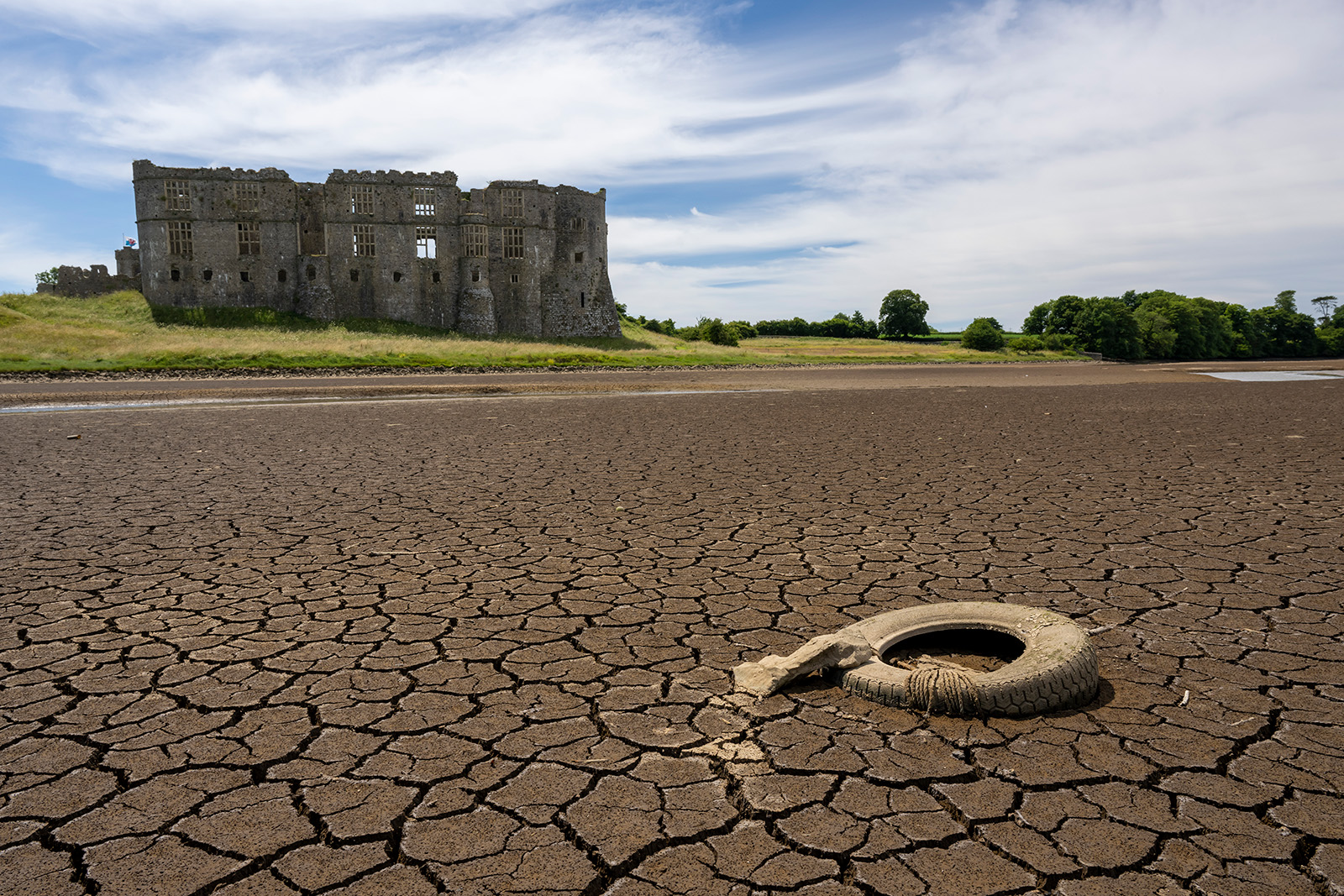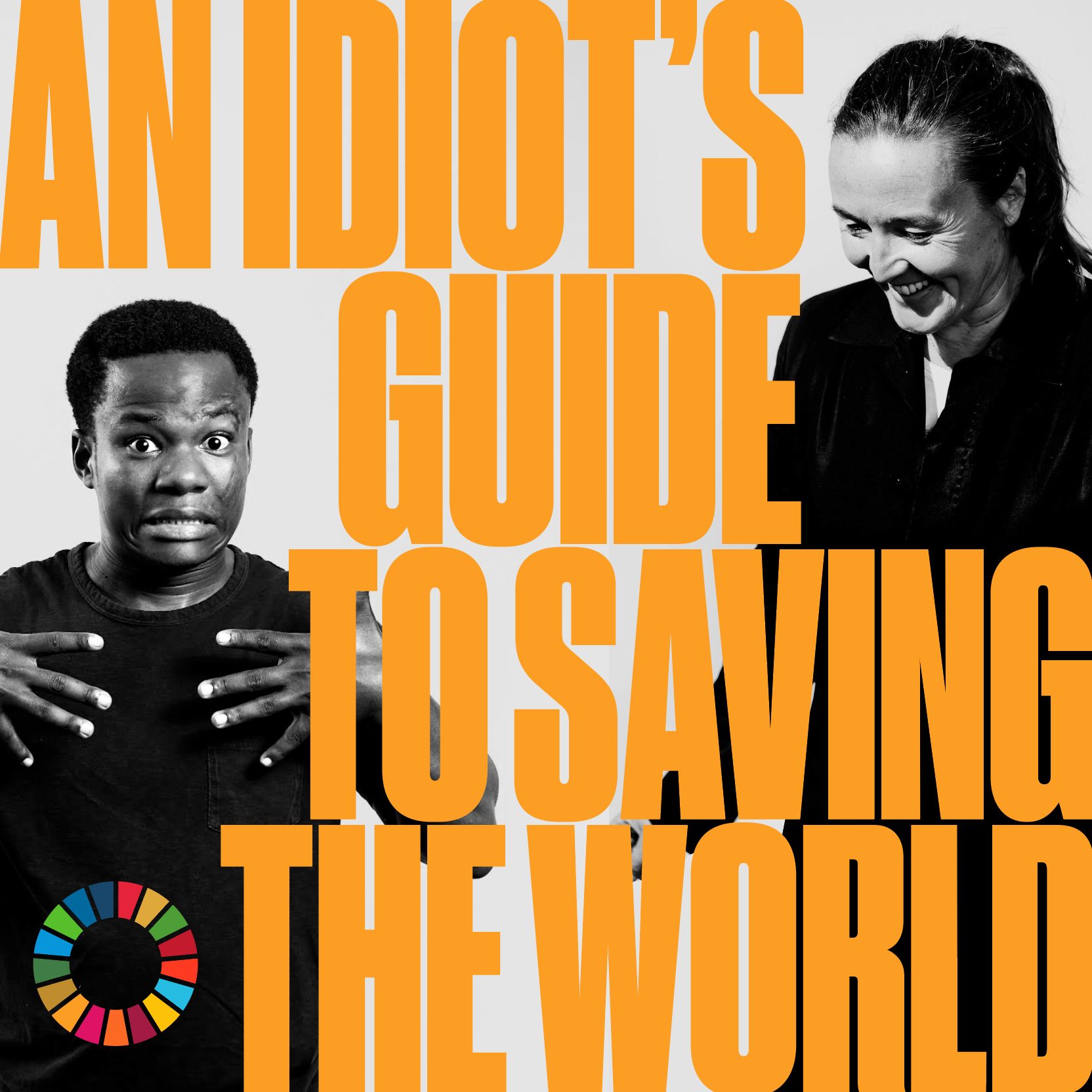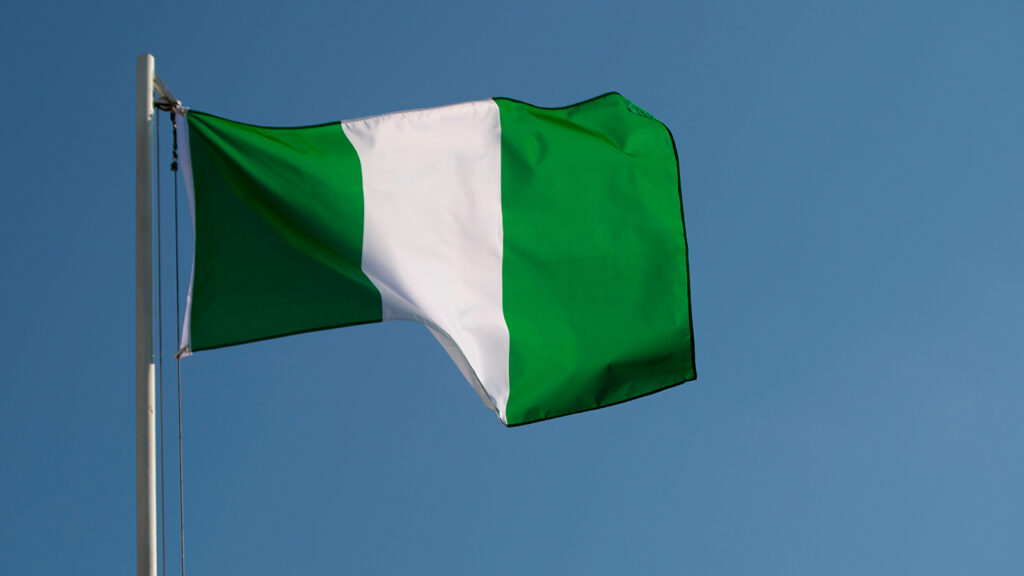
The dried out Carew River in Pembrokeshire on July 11, 2022 during the U.K.'s recent heatwave. Experts predict that London could run out of water by 2050.
Photo: Matthew Horwood/Getty Images
One in three people globally still do not have access to clean water: That’s over two billion people. As populations grow and the climate warms, water demand increases, as does the risk of cities experiencing droughts. London, for example, is predicted to run out of water by 2050.
Cape Town: Ground Zero
An Idiot’s Guide to Saving the World podcast highlights the U.N.’s Sustainable Development Goals through real life stories. In the episode on Global Goal 6 of Clean Water and Sanitation for everyone, Gallie and Madinga examined Cape Town, which was the first major city in the world to face taps running dry in 2018. They met Mariechen Puchert, a South African doctor who vividly recalls “Day Zero,” when Cape Town’s dam levels ran critically low and the city became the focus of South Africa’s water crisis.
On Day Zero, Capetonians were informed by the government that the taps for most homes and businesses would be cut off. Residents would have to queue to collect their restricted allotment of water under the watch of armed guards.
Puchert explains: “At the end of apartheid, with administrative handover, the city was warned that the infrastructure was not adequate for the rate of growth of the population. The story goes that dams were not increased in size, infrastructure was not strengthened. On top of that, there was a three-year drought.”
As a doctor, Puchert understood firsthand how hard hit public hospitals, particularly maternity wards, would be without clean water: “Childbirth is a messy process. … Historically, all over the world, postpartum sepsis was a major cause of maternal mortality. So being clean is extremely important! After every delivery, you need to clean up the floors, the bedding, laundry needs to be washed. It was a very intense and stressful experience both as health care workers as well as private people who required water for daily life.”
The consequences of water running out now face several major cities, including Mexico City, Los Angeles, Sao Paulo and London.
Gallie remembers the South African business community drawing up contingency plans: Companies like Unilever and Reckitt Benckiser, reliant on customers using water for their cleaning products, had to look at how their businesses would be affected by water running out.
Cape Town narrowly avoided a disaster: It rained. But the consequences of water running out now face several major cities, including Mexico City, Los Angeles, Sao Paulo and London. The risks of water scarcity are huge for business as well as individuals.
London Could Run Out of Water by 2050
Professor Lucy Easthope is one of the U.K.’s leading authorities on emergency planning and a professor in After Disaster at the University of Durham. Easthope has been urging the private and public sector in the United Kingdom to prepare for drought, which is forecast to hit London and Southern England by 2050. Easthope explains that although the U.K. has “rainfall, rivers and seas … we have a very neglected infrastructure [to move the water around]. We haven’t invested in it in the way that we need to. We think we’re much more resilient than we are.”
In the U.K., loss of access to clean water is a consequence of many other, bigger risks. Flooding, for example, is one of the biggest national risks, where there is “loads of water, but the wrong sort of water” Easthope explains — floodwater is neither clean nor drinkable.
Waterless Toilets
In the podcast, Lucy Easthope stresses how London can learn from Day Zero in Cape Town and from successful desalination schemes in the Middle East. “Many other countries have a much greater awareness of what a luxury water is and how it keeps them moving.”
She has studied how resilient communities are after natural disasters, including New Zealand after the 2011 earthquake. Sewage systems collapsed, and there was a national drive to build waterless, composting toilets: “When I got back from New Zealand, I had a photo album full of pictures of people’s loos — not only were the loos really beautiful, but they drew messages of hope on the walls. And that is my dream for when London runs out of water, and I refuse to let that go!”
Easthope works with politicians, the private sector and the public to ensure water remains on the agenda in the U.K.: “Politically, what I would love to see more is people, when there are local elections and mayoral elections, drilling down on this specific issue, because elected leaders will need to understand this issue [that running out of water is 25 years away.]”
We Need to Understand Our Water Footprint
In the U.K., all water companies are privately owned, not by the state. Even though these water companies have to write a drought plan every five years, Easthope still has concerns — these commercial businesses are beholden to their shareholders and can keep commercial secrets, meaning it is difficult to hold them to account if disaster strikes.
“We are all talking about our carbon footprints. … Nobody seems to be talking about our water footprints” says Gallie. The podcast concludes by looking at how small, individual changes can result in a big, collective shift in the right direction. If governments and water companies collaborate and plan and individuals adopt small daily changes, we can achieve the U.N.’s Global Goal 6: Clean Water and Sanitation, for everyone.








